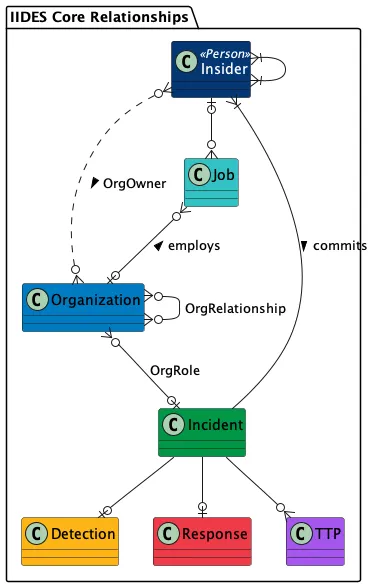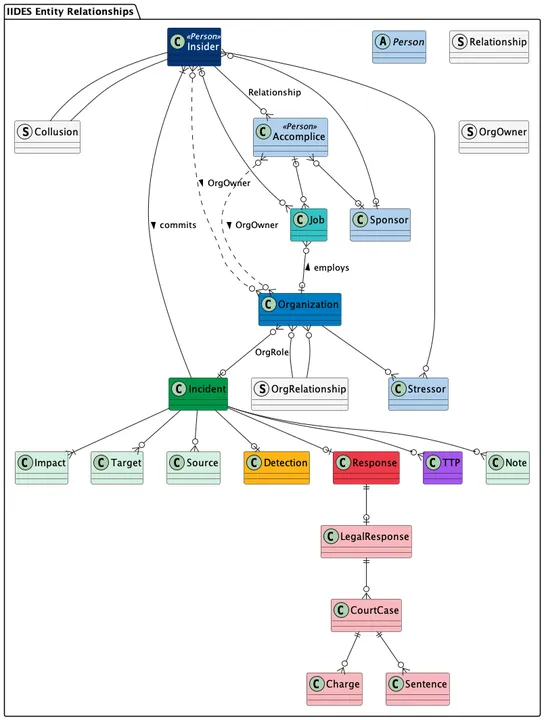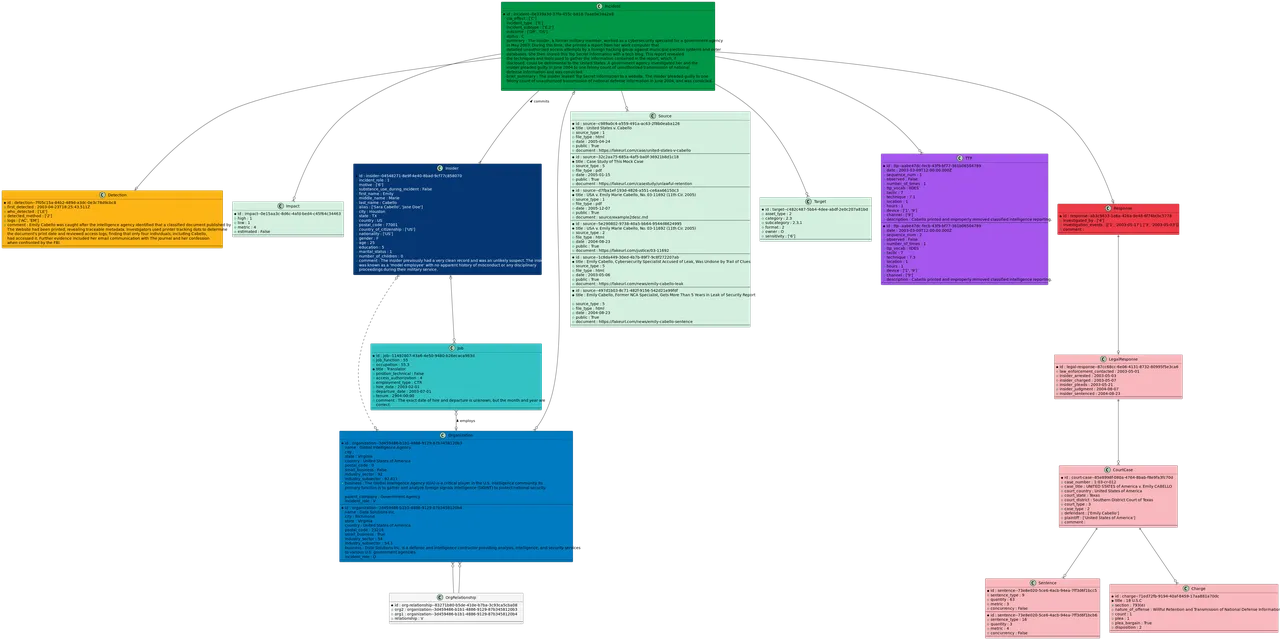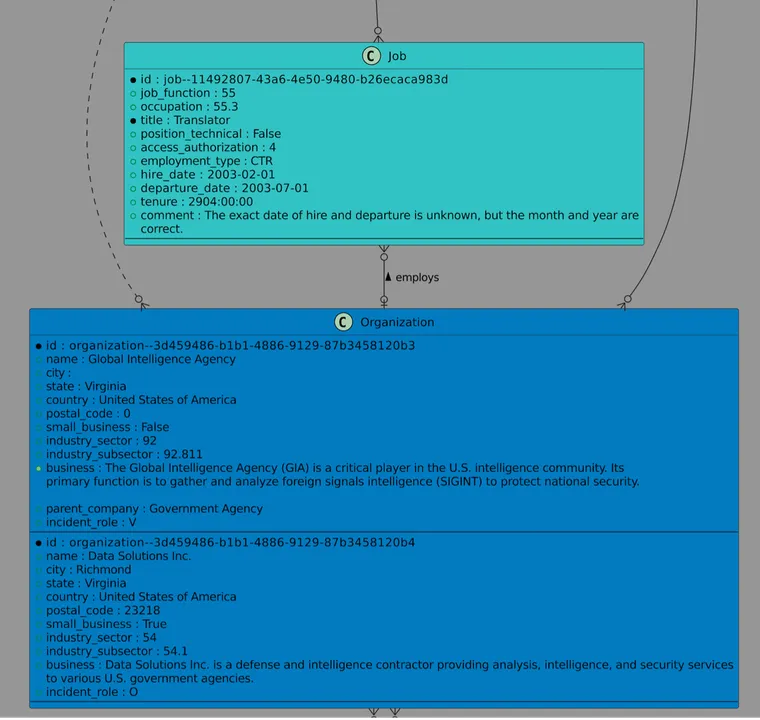Latest analysis signifies that organizational insiders perpetrate 35 p.c of information breaches, and malicious insider incidents price organizations a mean of $701,500 yearly. The examine and administration of insider risk and threat stay areas of more and more rising consideration, prevalence, and concern, however capturing and sharing details about insider incidents in a standardized means has been a problem for practitioners. A normal of incident classification and data sharing might permit practitioners to construct, keep, deidentify, and share insider risk case knowledge with an eye fixed towards constructing extra strong knowledge for evaluation and insights that profit their organizations and the entire neighborhood. On this submit, we introduce the Insider Incident Information Alternate Commonplace (IIDES) schema for insider incident knowledge assortment, present an instance use case, and invite you to collaborate with us on its improvement.
The sector of insider risk is itself nonetheless comparatively younger, encompassing many various fields, disparate sources of authorized and coverage mandates, and a number of other faculties of thought relating to ideas of operation. The newest version of The CERT Frequent Sense Information to Mitigating Insider Threats was revealed in 2022, and it builds on greater than twenty years of information assortment, analysis, and partnering by the SEI CERT Division. In a lot the identical means that analysis round insider risk remains to be rising and coalescing, practitioners are nonetheless constructing on expertise to work out greatest practices round technical defenses, behavioral and human parts mitigations, and strategies for storing and exchanging incident knowledge.
These targets have all motivated the CERT Insider Threat Group to develop a brand new commonplace for storing and exchanging insider risk case knowledge. Whereas there have been some makes an attempt at standardizing varied elements of insider risk terminology through the years, none have been complete sufficient to satisfy our personal knowledge assortment wants, and none present a selected schema for interconnecting items of information. The Insider Incident Information Alternate Commonplace (IIDES) contains buildings for accumulating and analyzing a wide range of technical, non-technical, organizational, and incident response data to satisfy the numerous wants of researchers and practitioners, and shall be accompanied by a corresponding instrument suite. We hope that IIDES helps a extra constant mapping of suggestions and greatest practices for response, detection, and mitigation of insider threats sooner or later.
IIDES improvement, as is the case with many requirements, required a tradeoff between a totally articulated, tightly constrained schema and a language versatile sufficient to be helpful throughout a variety of potential functions and customers. We used the guiding ideas of simplicity, experience, flexibility, and interoperability to stability these tradeoffs.
The IIDES Schema
IIDES offers a schema, coded in JSON, to gather and categorize insider risk incidents. The schema contains 4 sections: the core elements, further subcomponents, relationships, and vocabularies.
Core Parts in IIDES
There are seven core elements within the IIDES schema:
- Incident—a abstract and outline of the safety risk
- Insider—the individual concerned within the incident
- Group—the group concerned within the incident
- Job—the employment relationship between a person and a corporation
- Detection—particulars about how, when, and by whom the incident was found
- Response—the group’s response to the incident
- Tactic, Approach, and Process (TTP)—an motion taken by an insider throughout an incident

Determine 1: The core elements in IIDES
Extra Subcomponents
Some elements have further subcomponents. For instance, the Response element can have a Authorized Response subcomponent, which could embody a number of Courtroom Case elements. Determine 2 extra totally illustrates these relationships.

Determine 2: A diagram of all elements and subcomponents in IIDES
Relationships
A relationship connects two entities in IIDES. For instance, an Insider might have a relationship to an confederate who helped commit the incident. The Insider additionally doubtless has a relationship with a Job element. Specifying relationships is without doubt one of the main variations between IIDES and different requirements which have been proposed through the years. Quite than an inventory of potential phrases, IIDES offers all the construction of an incident, and the way each bit of details about the insider, the group, and the insider’s actions join collectively to type an entire image of the insider risk.
Vocabularies
Most of the elements in IIDES have related vocabularies that additional describe entities and supply constant terminology for discussing incidents throughout completely different organizations. The Insider element, for instance, features a vocabulary for the insider’s motive, reminiscent of monetary acquire or curiosity. These vocabularies will doubtless change over time as IIDES develops additional and customers counsel additions.
IIDES in Motion
We’ve got supplied numerous instance instances with fictitious knowledge as an instance how IIDES can work in follow. In a single instance, we created a case with the following abstract:
The insider, a former navy member, labored as a cybersecurity specialist for a authorities company in Could 2003. Throughout this time, she printed a report from her work laptop that detailed unauthorized entry makes an attempt by a overseas hacking group towards municipal election methods and voter databases. She then shared this Prime Secret data with a tech weblog. This report revealed the strategies and instruments used to collect the knowledge contained within the report, which, if disclosed, may very well be detrimental to the US. A authorities company investigated her, and the insider pleaded responsible in June 2004 to at least one felony depend of unauthorized transmission of nationwide protection data and was convicted.
The pattern instances embody a JSON file matching IIDES, a neater to learn markdown illustration of the identical knowledge, and a visualization of the elements generated from the schema.

Determine 3: IIDES kinds the incident knowledge right into a structured schema for simple assortment, evaluation, and sharing. The decrease left blocks are magnified in Determine 4.

Determine 4: An excerpt of a visualization of a pattern case in IIDES. Each bit of case data matches into the organized schema.
These examples illustrate the insider’s actions, their relationships, and the result of the incident in a format that permits simpler storage and sharing of insider incidents.
Work with the SEI
We anticipate IIDES will profit those that create fashions and simulations for coaching, schooling, and greatest practices by offering a constant vocabulary throughout organizations. Practitioners reminiscent of analysts, investigators, and people accountable for threat administration stand to learn from constructing inside case corpora that may be simply analyzed, searched, and measured. For these with a must share case knowledge with different practitioners, different related companies or entities, and third-party organizations, reminiscent of regulation enforcement, governmental companies, or analysis organizations, IIDES offers a constant format for a shared understanding.
We’re very focused on getting suggestions from the neighborhood relating to IIDES and plan to include the suggestions we obtain earlier than releasing an official 1.0 model. How do you see your group utilizing IIDES? Are there particular additions or adjustments you wish to see? Are there use instances or advantages that we haven’t anticipated? Do we have to make clear something within the documentation or vocabularies? You’ll be able to assessment the IIDES white paper for extra details about IIDES improvement and its core performance or go straight to the schema or documentation for every of the courses.
You’ll be able to submit your suggestions to information@sei.cmu.edu or immediately on GitHub by way of the points tab.